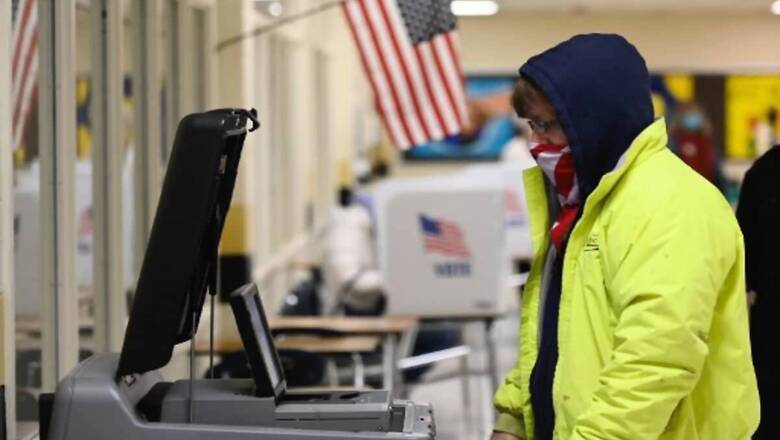
views
Election Day is finally here in the United States. So naturally many of you are wondering: When will the world know the outcome?
Unfortunately, no one knows for sure. We know, we know, you’ve waited this long, and you’re just trying to decide whether to stay up all night or go to bed and hope there’s an answer in the morning. Or on Thursday. Or Friday at the latest.
We can’t make that choice for you, but we can give you some tools to help think through the night.
When the polls close.
The first polls close on the East Coast at 7 pm local time (5.30 am IST), and the last don’t close until after 12 am Eastern time (10.30 pm IST).
If people haven’t voted by the time their state’s polls close, or isn’t in line to vote by then, they’ve run out of time.
States start reporting some of their results as soon as their polls close. But remember, they don’t report them all at once, so you might see skewed results when you’re scrolling through the news channels.
When the ballots are counted.
This year especially, things are going to be a little different.
Maggie Astor, a politics reporter for The New York Times, explored the history of ballot counting, amid President Donald Trump’s recent ahistorical claim that the election “should end on November 3rd., not weeks later.”
In reality, Astor wrote, no state ever reports final results on election night, and no state is legally expected to.
Traditionally, news organizations have projected winners based on partial counts.
This year, a big question surrounds whether enough states will have enough of their votes counted on election night for accurate projections. And depending on which states those are, we may not know immediately which candidate has actually reached the 270 votes in the Electoral College to have won the presidency.
What about the electoral math?
It’s complicated. The Daily podcast this week outlined three of the potential scenarios, though there are many more that could make election night, and the days that follow, more complicated.
“We’ve never had an election like this before,” Alex Burns, a national political correspondent, told the host, Michael Barbaro. “It’s possible that we will have these expectations and they will be totally shattered by what actually happens on election night. It’s possible the counting could be much faster, it’s possible it could be much slower.”
Those three scenarios Mr. Burns and Mr. Barbaro describe:
— Joe Biden scores a significant win in one of the East Coast states that is expected to count its votes the fastest. If Biden wins Florida, for example, that’s a sign that Trump’s path to victory may be difficult. “There are not a lot of Republicans who believe that the president can win this race without Florida,” Burns said.
— Trump holds on in all of those early major East Coast states. That signals a close race, which means all eyes turn toward the Midwest.
— The third is what Burns calls the “It’s a giant mess and we just don’t know anything” scenario. He describes drawn-out uncertainty: “This is Florida 2000 in several states at once.” In that case, final calls in several key states would rest on the counting of mail-in ballots, which could take days.
c.2020 The New York Times Company
Constituency-Wise Election Results LIVE: West Bengal | Tamil Nadu | Kerala | Assam | Puducherry
LIVE Blogs: West Bengal | Tamil Nadu | Kerala | Assam




















Comments
0 comment